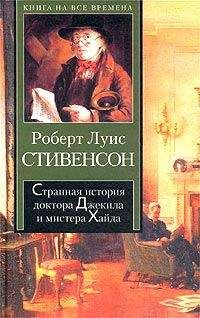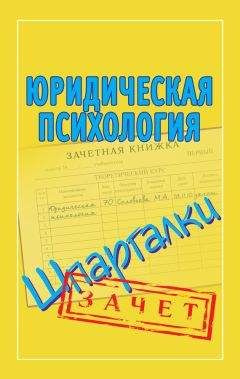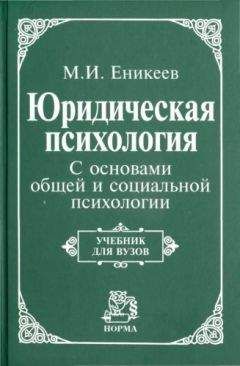Роберт Стивенсон - Английский с Р. Л. Стивенсоном. Странная история доктора Джекила и мистера Хайда / Robert Louis Stevenson. The Strange Case of Dr. Jekyll and Mr. Hyde
“With all my heart (со всей душой /соглашусь/),” said the lawyer. “I shake hands on that, Richard (договорились, Ричард; shake hands on it – по рукам!; to shake hands – пожать руки; to shake – трясти).”
“I think you might have warned me,” returned the other, with a touch of sullenness. “But I have been pedantically exact, as you call it. The fellow had a key, and, what’s more, he has it still, I saw him use it, not a week ago.”
Mr. Utterson sighed deeply, but said never a word; and the young man presently resumed. “Here is another lesson to say nothing,” said he. “I am ashamed of my long tongue. Let us make a bargain never to refer to this again.”
“With all my heart,” said the lawyer. “I shake hands on that, Richard.”
II
Search for Mr. Hyde
(Поиски мистера Хайда)
That evening Mr. Utterson came home to his bachelor house in sombre spirits (тем вечером мистер Аттерсон вернулся в свой холостяцкий дом в мрачном настроении; bachelor – холостяк; spirit – душа, дух; настроение, душевное состояние), and sat down to dinner without relish (и он сел ужинать = приступил к ужину без аппетита; relish – удовольствие, наслаждение). It was his custom of a Sunday (по воскресеньям он имел обыкновение), when this meal was over (поужинав: «когда его прием пищи был окончен»; to be over – окончиться, завершиться), to sit close by the fire (сидеть у камина; fire – огонь; печь, камин; close – близко, рядом, около), a volume of some dry divinity on his reading desk (с томиком какого-нибудь сухого богословского труда на подставке: «пюпитре»; dry – сухой; скучный, неинтересный; divinity – божественность; богословие), until the clock of the neighbouring church rang out the hour of twelve (/и читал его/, пока часы соседской церкви не отбивали полночь; to ring – звенеть, звучать; звонить), when he would go soberly and gratefully to bed (после чего он неторопливо и с чувством выполненного долга отправлялся спасть; sober – трезвый; сдержанный, спокойный; grateful – благодарный, признательный). On this night, however, as soon as the cloth was taken away (однако в этот вечер, как только приборы были убраны со стола /после ужина/; cloth – ткань, сукно; скатерть), he took up a candle and went into his business room (он взял подсвечник: «свечу» и отправился в свой кабинет). There he opened his safe (там он открыл сейф), took from the most private part of it a document (достал из тайника в нем: «из самой потаенной части его» некий документ; private – частный; тайный, не доступный для всех) endorsed on the envelope as Dr. Jekyll’s Will (на конверте которого было написано: «Завещание доктора Джекила»; to endorse – расписываться на обороте документа; делать отметку /на документе/), and sat down with a clouded brow to study its contents (и, усевшись, с мрачным видом, стал изучать его содержание; to cloud – покрывать облаками, тучами; омрачать; cloud – облако, туча; brow – бровь; выражение лица).
That evening Mr. Utterson came home to his bachelor house in sombre spirits, and sat down to dinner without relish. It was his custom of a Sunday, when this meal was over, to sit close by the fire, a volume of some dry divinity on his reading desk, until the clock of the neighbouring church rang out the hour of twelve, when he would go soberly and gratefully to bed. On this night, however, as soon as the cloth was taken away, he took up a candle and went into his business room. There he opened his safe, took from the most private part of it a document endorsed on the envelope as Dr. Jekyll’s Will, and sat down with a clouded brow to study its contents.
The will was holograph (завещание было написано собственноручно /мистером Джекилом/; will – воля, сила воли; завещание; holograph – собственноручно написанный документ); for Mr. Utterson, though he took charge of it now that it was made (так как мистер Аттерсон, хотя он и принял этот документ на хранение теперь, когда он был уже составлен; to take charge of – заботиться /о ком-либо/; брать на хранение), had refused to lend the least assistance in the making of it (отказался оказать малейшее содействие в его составлении; to lend – давать взаймы; придавать, оказывать; to assist – помогать, содействовать); it provided not only that, in case of the decease of Henry Jekyll (в нем не только предусматривалось, что в случае кончины Генри Джекила; to provide – снабжать; предусматривать), M. D., D. C. L., LL. D., F. R. S., &c. (доктора медицины, доктора гражданского права, доктора юридических наук, члена Королевского общества и т. д.; M. D. – Doctor of Medicine; D. C. L. – Doctor of Civil Law; LL. D. – Doctor of Laws; F. R. S. – Fellow of the Royal Society), all his possessions were to pass into the hands of his “friend and benefactor Edward Hyde (все его имущество переходило в руки его «друга и благодетеля Эдварда Хайда»)”; but that in case of Dr. Jekyll’s “disappearance or unexplained absence for any period exceeding three calendar months (но и /указывалось/, что в случае «исчезновения или необъяснимого отсутствия доктора Джекила на срок, превышающий три календарных месяца»),” the said Edward Hyde should step into the said Henry Jekyll’s shoes without further delay (вышеупомянутый Эдвард Хайд должен вступить в наследство вышеозначенного Генри Джекила без дальнейших проволочек; to step into smb.’s shoes – занять чье-либо место; унаследовать что-либо), and free from any burthen or obligation (и освобождается от каких-либо обременений или обязательств; burthen = burden – ноша; бремя), beyond the payment of a few small sums to the members of the doctor’s household (кроме выплаты нескольких небольших сумм слугам доктора; member – член; household – семья, домашние /включая слуг/).
The will was holograph; for Mr. Utterson, though he took charge of it now that it was made, had refused to lend the least assistance in the making of it; it provided not only that, in case of the decease of Henry Jekyll, M. D., D. C. L., LL. D., F. R. S., &c., all his possessions were to pass into the hands of his “friend and benefactor Edward Hyde”; but that in case of Dr. Jekyll’s “disappearance or unexplained absence for any period exceeding three calendar months,” the said Edward Hyde should step into the said Henry Jekyll’s shoes without further delay, and free from any burthen or obligation, beyond the payment of a few small sums to the members of the doctor’s household.
This document had long been the lawyer’s eyesore (этот документ давно оскорблял взор нотариуса = был источником мучений для нотариуса; eyesore – что-либо противное, оскорбительное /для глаза/; sore – болячка, рана, язва). It offended him both as a lawyer (он оскорблял его и как нотариуса) and as a lover of the sane and customary sides of life (и как приверженца здравых и привычных сторон жизни = издавна сложившихся разумных традиций; lover – любитель; приверженец; custom – привычка; обычай), to whom the fanciful was the immodest (для которого причуды казались неприличными: «причудливое было нескромным»; fancy – причуда; modest – скромный). And hitherto it was his ignorance of Mr. Hyde that had swelled his indignation (и до сих пор именно то, что он не знал мистера Хайда, переполняло его негодованием; ignorance – невежество; неведение, незнание; to swell – надуваться; быть переполненным чувствами); now, by a sudden turn, it was his knowledge (а теперь, вследствие такого неожиданного поворота /дела/ – осведомленность /о нем/; turn – оборот; перемена, изменение /состояния/). It was already bad enough when the name was but a name (/ситуация/ уже была достаточно скверной, когда это имя было просто именем) of which he could learn no more (о котором он не мог узнать ничего больше). It was worse when it began to be clothed upon with detestable attributes (теперь, когда оно начало облекаться такими отвратительными качествами, стало еще хуже; to clothe – одевать; облекать); and out of the shifting, insubstantial mists that had so long baffled his eye (и вот из зыбкой, призрачной мглы, так долго застилавшей его глаза; to shift – перемещать, сдвигать, передвигать; insubstantial – иллюзорный, нереальный; substantial – действительный, материальный, реальный, реально существующий; substance – вещество; сущность; to baffle – озадачивать; мешать, препятствовать), there leaped up the sudden, definite presentment of a fiend (перед ним вдруг возникло определенное изображение злого демона; to leap – прыгать, скакать; внезапно появляться; presentment – предъявление, предоставление; изложение, описание; изображение).
This document had long been the lawyer’s eyesore. It offended him both as a lawyer and as a lover of the sane and customary sides of life, to whom the fanciful was the immodest. And hitherto it was his ignorance of Mr. Hyde that had swelled his indignation; now, by a sudden turn, it was his knowledge. It was already bad enough when the name was but a name of which he could learn no more. It was worse when it began to be clothed upon with detestable attributes; and out of the shifting, insubstantial mists that had so long baffled his eye, there leaped up the sudden, definite presentment of a fiend.
“I thought it was madness (я думал, что это безрассудство; madness – душевное расстройство; безумие, безрассудство),” he said, as he replaced the obnoxious paper in the safe (сказал он, возвращая обратно в сейф ненавистный документ; obnoxious – оскорбительный; противный, отвратительный; paper – бумага; документ); “and now I begin to fear it is disgrace (а теперь я начинаю бояться, что здесь кроется бесчестье; disgrace – позор, бесчестье).”
With that he blew out his candle (с этими словами он задул свечу; to blow – дуть), put on a great coat, and set forth in the direction of Cavendish Square (надел пальто и отправился в направлении Кавендиш-Сквер), that citadel of medicine (этой цитадели медицины = к этому средоточию медицинских светил), where his friend, the great Dr. Lanyon, had his house and received his crowding patients (где располагался дом его друга, знаменитого доктора Лэньона, и где тот принимал своих многочисленных пациентов; to crowd – толпиться, тесниться; собираться, скапливаться; crowd – толпа). “If any one knows, it will be Lanyon (если кто-то и может в этом разобраться, так это Лэньон; to know – знать; обладать знаниями, разбираться),” he had thought (подумал он).




